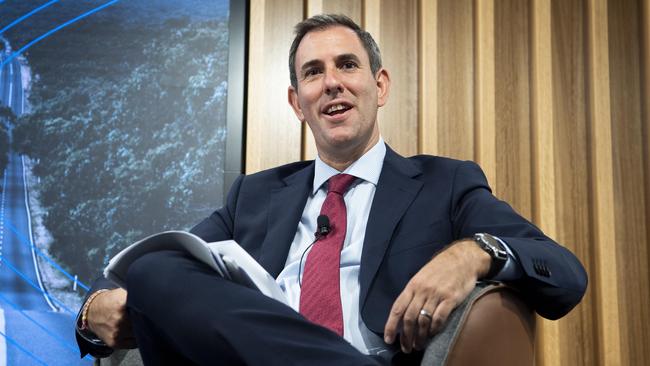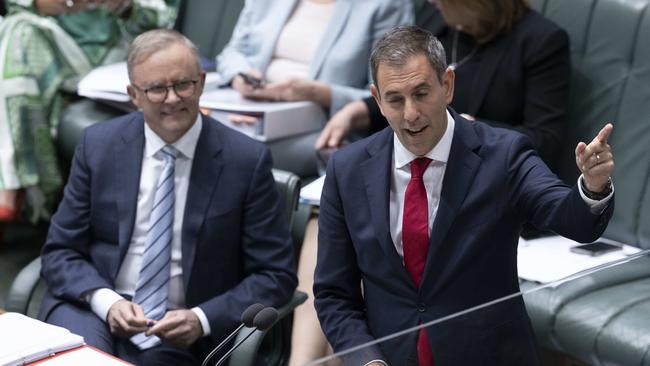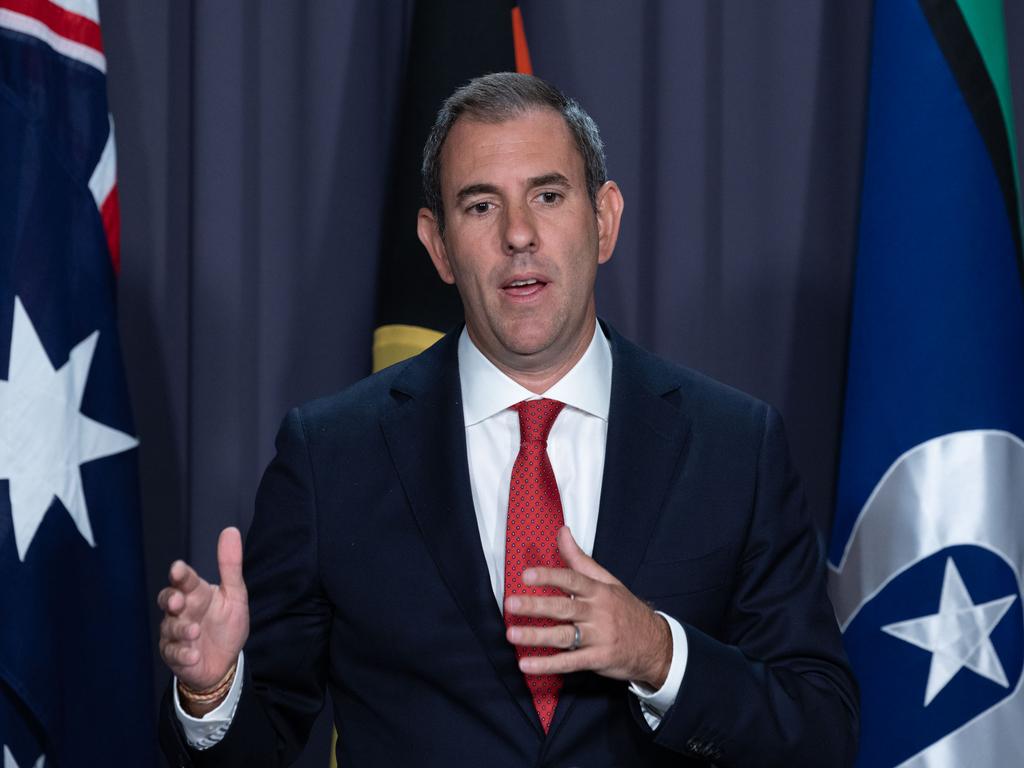
In an extract of his essay that ran in The Weekend Australian, Treasurer Jim Chalmers showed how the Albanese government will transform the nation and direct capital into areas that accord with government policy, rather than leaving it to the market.
In other words, we will embrace an Australian form of socialism which Chalmers calls “value based capitalism” and says it will be “uniquely Australian”.
Markets will be horrified but, at least initially, it will be popular with many Australians.
An important step will be to “renovate” the Reserve Bank. Chalmers does not detail how the Reserve Bank “renovation” will work, but given the tone of his commentary, the social impacts of its actions will loom much larger.
Chalmers, in his article published in The Monthly magazine on Monday, refers to his electorate of Logan, which is an outer suburb of Brisbane that includes many lower income people who undertook considerable borrowings to build new houses on the basis of continued low interest rates.
A government priority is higher wages. It is clearly possible that the agenda of the “renovated” Reserve Bank to reduce inflation to 2 per cent via higher interest rates may be modified.
Markets pricing bonds and shares, plus enterprises large and small, need will need more information on how “Australian capitalism” will work and begin to adjust their strategies because, irrespective of the outcome, the new model may be with us for some time.
Institutions like the Productivity Commission are likely to be transformed to fit the new model.
It will start with the creation of a “new sustainable finance architecture which will rate the climate impact of different investments”.
Those that don’t fit the government model will find it much harder to gain capital. Then comes “impact” investing looking at a social purpose economy in areas like aged care, education and disability but broadening to other areas of government policy.
The recent policies in coal and carbon are examples of how this might work.
The Australian Competition & Consumers Commission concludes that Australia desperately need new east coast gas supplies.
The government doesn’t want new gas projects and so ignores the immense onshore gas reserves in Victoria, makes it hard for the NSW Narrabri deposit and frightened off investment in Queensland’s Surat basin.
The government policy is to put a price cap on energy, undertake subsidisation and convert potential export sales into local supply. This formula may be applied to other mineral areas South American countries pursuing socialism usually get into trouble because markets trash their currency.

Accordingly, traditionalists in the business community will immediately conclude that the whole thing will blow up in the ALP’s face and the coalition will be back in power in no time.
But that assumption may be wrong because it ignores the amazing situation off 2023 Australia. Our exports of minerals and many areas of agriculture are booming, and the boom looks like continuing.
Australia may have years of prosperity ahead, providing the government with a trade revenue base to undertake its new model. There are not many countries in a similar situation to Australia.
Perhaps the nearest is Saudi Arabia, where there is high revenue and a very socialistic state with strong government investment policies.
Saudi sometimes uses force to implement its policies but, thanks to Paul Keating, the Australian government has a different, but nevertheless powerful tool, to influence capital markets.
Workers around the land are putting vast sums into industry superannuation funds, and these funds are controlled by unions and compliant employer organisations. They are already moving in behind the government agenda and its values.
Accordingly, those companies that don’t adhere to the government environmental guidelines will find it difficult to raise both loan and equity capital.
In addition, the industry funds are already major shareholders in most of our large corporations, so their voting power will deliver considerable influence over corporate boards.
Government contracts are an important part of the revenue of a great many Australian enterprises. Companies that don’t adhere to a socialistic government line fear they will soon find they will not get those contracts.
Already business organisations are taking stands on issues where they normally would not become involved. They understand that and need to be on side with the government is far more important in an administration that follows a socialistic agenda rather than one which is based on the market economy.
Superannuation funds have really delivered for Australian savers using the market economy. Their performance outlook may not be nearly as favourable under the government agenda model.
With the Greens, the government effectively controls the Senate and, if the NSW opinion polls are right, the ALP will soon control every mainland state and territory. No government in our history has such unfettered power to institute change.
And finally, here are some linked edited quotes from Chalmers’ commentary in the Weekend Australian which illustrate what is ahead:
“Investment is a powerful tool at our disposal … extending this co-investment model in more areas of the economy, with programs already under way in the industry, housing and electricity sectors.
“Impact investing too. Across the social purpose economy, in areas like aged care, education and disability, effective organisations with high quality talent can offer decent returns and demonstrate a social dividend.”






The era of the free-market economy that Paul Keating dramatically expanded in the 1980s, which delivered unprecedented national prosperity, is about to be substantially curtailed.